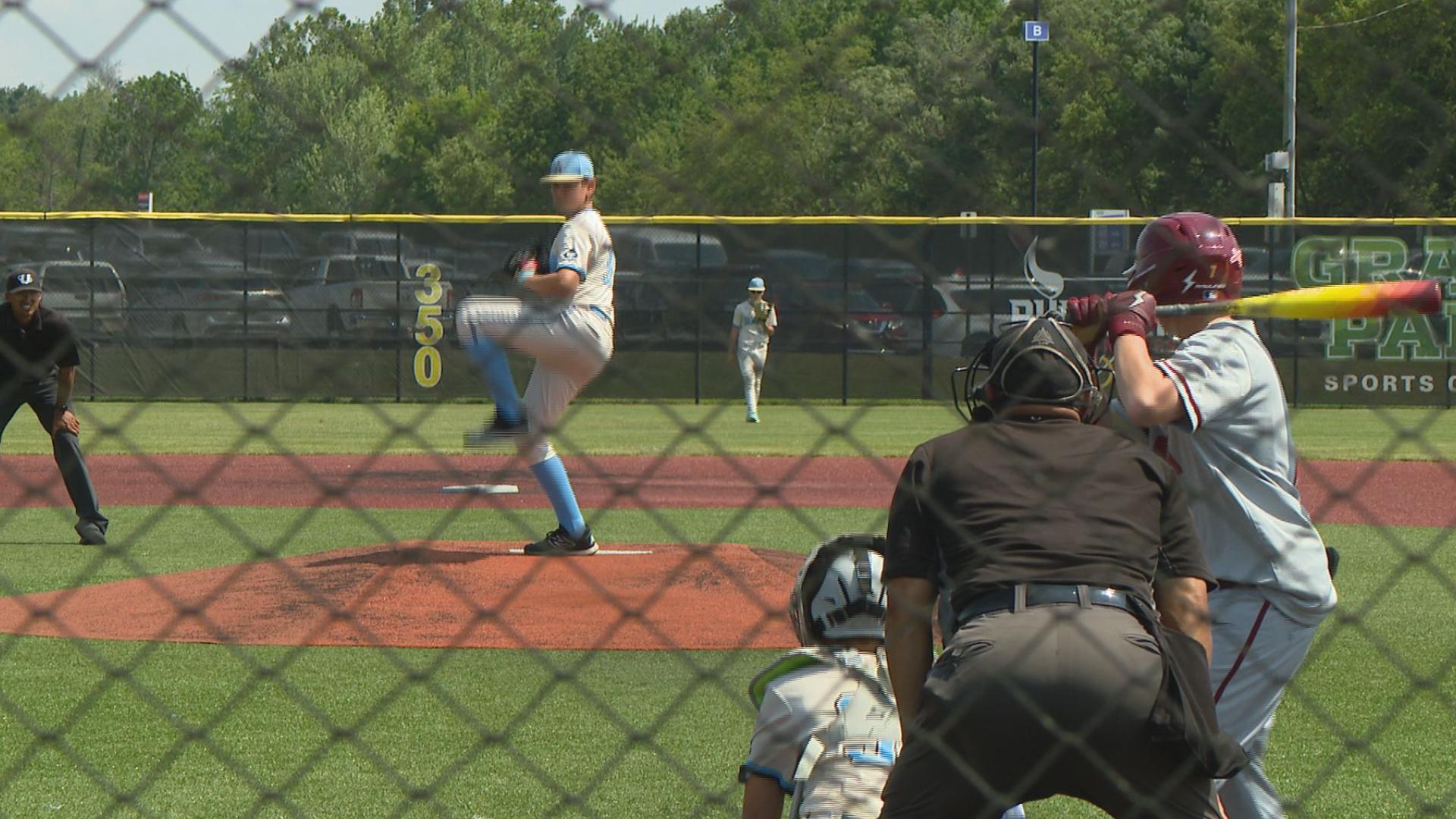INDIANAPOLIS — Every summer, school athletes battle an additional opponent: heat.
Every year, the Indiana High School Athletic Association reports that there's a heat scare.
However, with a shortage of certified athletic trainers and EMTs, there's no mandate to monitor athletes on the field. Local sports officials work around the clock to avoid heat-related emergencies.
"If it's 90 degrees outside, it's easily 115, 100 on the turf," said Derek Whitfield, national director of logistics for United Umpires.
Athletes do their best to stay cool in between games at Grand Park in Westfield.
"Water, dug out, fans [and] lots of water," Whitfield said.
Grand Park always has a certified athletic trainer on site and multiple field managers, all connected by radio.
"We staff it really well to take care of people before we have to get the attention of EMTs and EMS," Dr. Jamey Gordon, director of ProX Athlete Development at Grand Park, said.
That's not always the case for high school athletes. Despite precautions, the Indiana High School Athletic Association always hears about a heat scare.
RELATED: Carmel City Council lifts restrictions on popular bar, designates new area for outside drinking
"Every year, there's an incident where a kid has to be put in the emergent tub because their core temperature has risen to the level where, we've got to stop," Robert Faulkens, IHSAA assistant commissioner, said.
Faulkens said there's no state law, mandate or policy for heat-related protocols. Otherwise, many schools wouldn't be able to play.
"Fewer athletic trainers, not a lot of EMTs for our school communities — how do we address those issues and prepare schools and communities to do the best for athletes?" Faulkens said.
That's why every coach is required to learn how to recognize and treat heat illness.
"People can be comfortable in that our coaches know what to expect, how to deal with it and how to recognize those signs and symptoms of heat illness," Faulkens said.
IHSAA gives guidance to its schools.
"We'll tell them, 'Here are the recommendations. Here's what we think, but the decision is yours for your community,'" Faulkens said.
The guidance is based off their sports medicine advisory committee, made up of doctors across the state, along with the National Federation of State High School Association, also based in Indy.
"Think of the kids health and safety first and foremost," Faulkens said.
Faulkens encourages schools to invest in a wet bulb globe thermometer. These are six feet to the ground, at the level of the athlete and on location. So, they're much more accurate.

